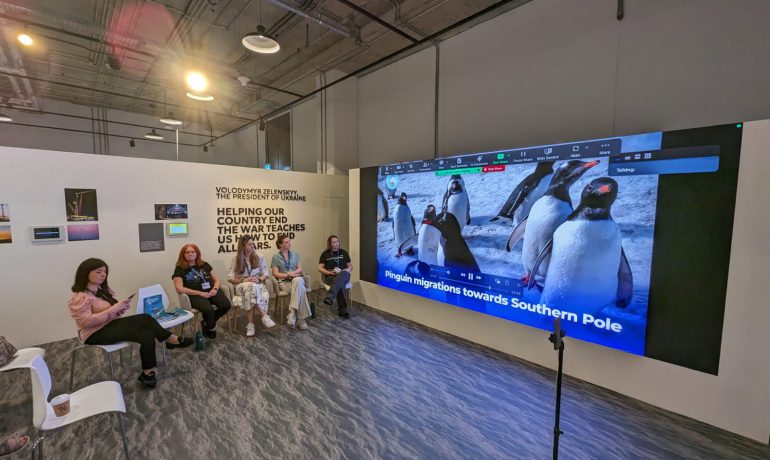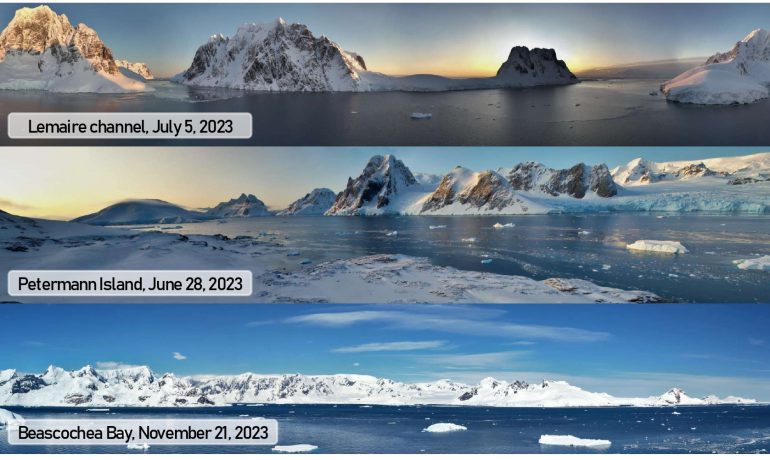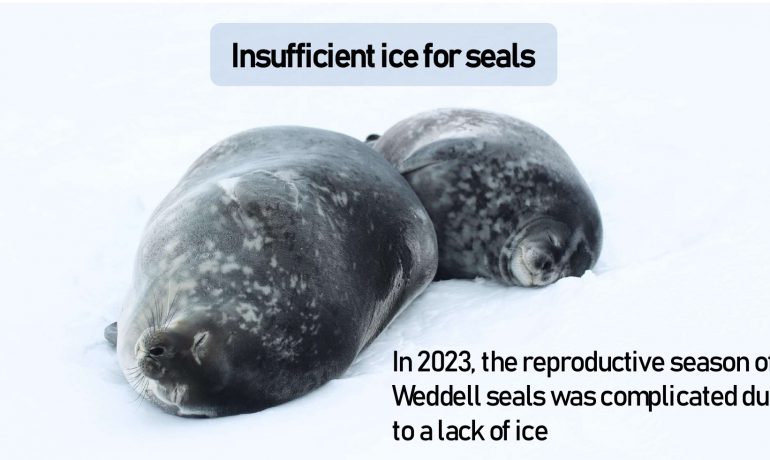Ukrainian scientists spoke about climate anomalies recorded at Akademik Vernadsky station and their impact on Antarctica and the planet as a whole during COP28. This is the 28th United Nations Climate Change Conference taking place in Dubai from 30 November to 12 December.
The event with the participation of Antarctic researchers took place today, December 4, in the Ukrainian pavilion. This platform is dedicated to informing the international community about the extent of environmental damage from Russia’s military aggression against Ukraine. The event was organized by the National Antarctic Scientific Center together with the Ministry of Environmental Protection and Natural Resources of Ukraine and the APENA3 project.
Here are some facts presented by our scientists:
- The highest air temperature in winter is +8.7°С. On July 3, 2023, meteorologists at Vernadsky recorded the highest July air temperature for all years of observation. The previous highest value was +5.6°C in July 1965, that is, when the station still belonged to Great Britain. This confirms the conclusion of a new climate report from the UN World Meteorological Organization, namely that 2023 will be the warmest year (!) on record.
- The lowest air temperature is only -13.8°С. This indicator marked the coldest day of 2023 in Vernadsky area. Previously, it fluctuated between -15…30°C, and in 1958 it was -43.3°C.
- The highest snow level is 350 cm. Such a new snow record was recorded at Vernadsky in November 2022. This is almost half a meter higher than the previous maximum. And this despite the fact that the 3 meters recorded in December 2021 were also a record: they exceeded 2.65 m in 2016. With such snow levels, penguins walked on the roof of the station. How does this relate to climate change? As a result of a warm winter, more moisture is retained in the atmosphere, which leads to more intense precipitation. This is one of the reasons why snow accumulation is observed in Antarctica.
- The least amount of sea ice. Based on the results of the Antarctic winter of 2023, polar explorers recorded that there was little floating ice in the Vernadsky water area, and a stable ice cover, which during this period usually occupies the sea around our island, did not form at all. In general, sea ice levels in Antarctica have recently reached record low, according to the UN.
Scientists have already noted the impact of such situation on the life of animals in the station area. For example, this season Weddell seals have experienced problems with childbirth due to the lack of floating ice, while thermophilic subantarctic penguins, on the contrary, are capturing more and more nesting territories.
At COP28, it was noted that it is necessary to intensify the efforts of all countries to prevent and mitigate the consequences of climate change. However, instead, some states, on the contrary, focus on destruction and war.
We thank Vadym Tkachenko, biologist of the 28th UAE, who has joined the Conference from the station to present important data, as well as meteorologists Svitlana Krakovska and Anastasiia Chyhareva for presenting trends in climate change, as well as Olha Yevstihnieieva, adviser to the head of the State Energy Efficiency Agency, for excellent moderation of the event.






